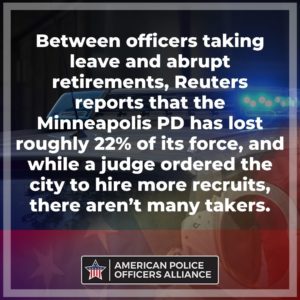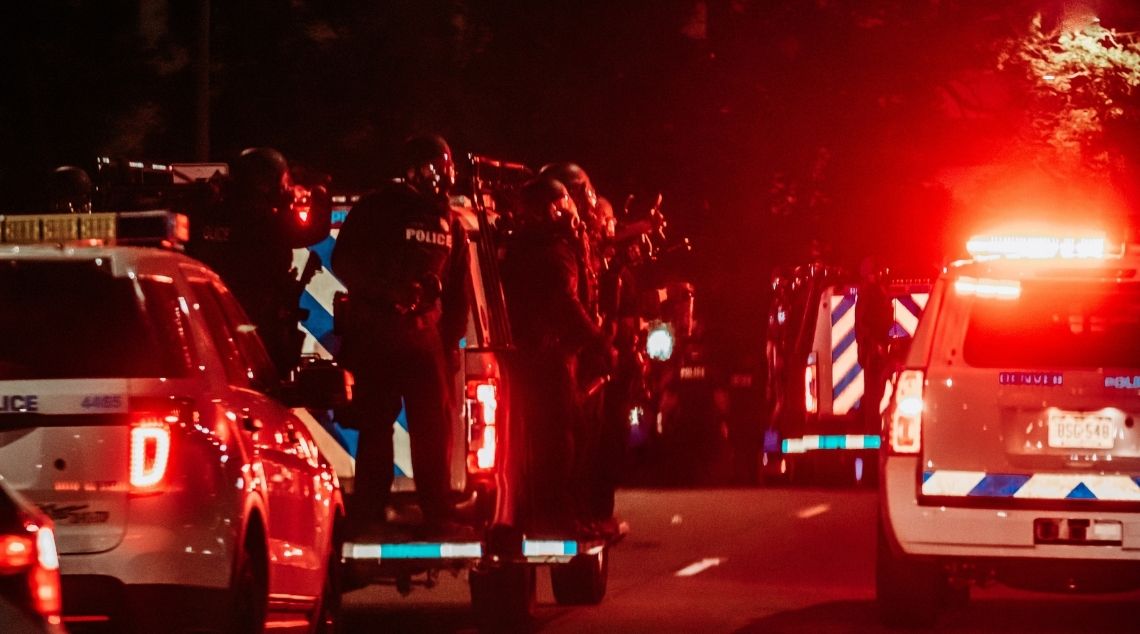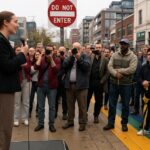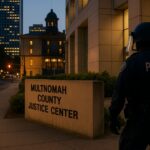As November approaches, we have been covering a ballot measure in Minneapolis, Minnesota which would all but give total control of law enforcement to City Council, amend the city’s charter to eliminate police staffing requirements, and pave the way to completely disband the Minneapolis PD.
For more in-depth coverage on the language of and the background on this dangerous ballot measure, see our blog post from August.
But the core of the measure would allow the Minneapolis City Council to eliminate the police department and replace it with a much touted “Department of Public Safety” which would focus on more “community based” approaches to solving the city’s spiraling crime problem.
A problem which the city’s anti-law enforcement policies, such as defunding their police department, has severely exacerbated in the first place.
A recent investigative analysis of police activity in Minneapolis since George Floyd was killed by Officer Chauvin conducted by Reuters, titled After Floyd’s killing, Minneapolis police retreated, shows that police in the city have dramatically curtailed their efforts as their capabilities are destroyed by the city.

Reuters notes that in the aftermath of the George Floyd killing, “police officers all but stopped making traffic stops. They approached fewer people they considered suspicious and noticed fewer people who were intoxicated, fighting or involved with drugs, records show.”
For one former officer, who retired last year, the politicization and demonization of police in the city is one of the primary reasons.
Retired commander, Scott Gerlicher, told Reuters:
“There isn’t a huge appetite for aggressive police work out there, and the risk/reward, certainly, we’re there and we’re sworn to protect and serve, but you also have to protect yourself and your family.”
After reviewing over two million police dispatches over the last year, Reuters found that data shows a 76% drop in police approaching suspicious persons on the street and an 85% drop in reported traffic stops.
Minneapolis Mayor Jacob Frey acknowledges that budget slashes and staffing shortages, both of which directly related to the stance taken by members of the city’s government, has created much of the problem.
“Cities do need police officers, and yes there are severe consequences when the numbers get as low as ours.”
But the drop in police intervention has not just led to fewer traffic stops:
“The month before Floyd was killed, police made 90 drug arrests, police records show. A year later, they made 28. The number of people charged with breaking gun laws dropped by more than half, even as shootings multiplied.”
Between officers taking leave and abrupt retirements, Reuters reports that the Minneapolis PD has lost roughly 22% of its force, and while a judge ordered the city to hire more recruits, there aren’t many takers.
But this is what the defund movement has wanted all along. This is a political outcome which could have been easily avoided, but now the city wants to give residents the option to slash police numbers even more. It is all but certain that activists and Leftist politicians who support this upcoming ballot measure will politicize the debate with hyperbole and talking points while ignoring the dreadful results of their policies on policing up until now.
This study by Reuters makes clear: Cities need police. And beyond that obvious conclusion, cities need police who are not vilified and obstructed politically from doing their jobs, keeping our communities safe.
Read the entire Reuters analysis here.
Image Credit: Photo by Jakob Rosen- on Unsplash










